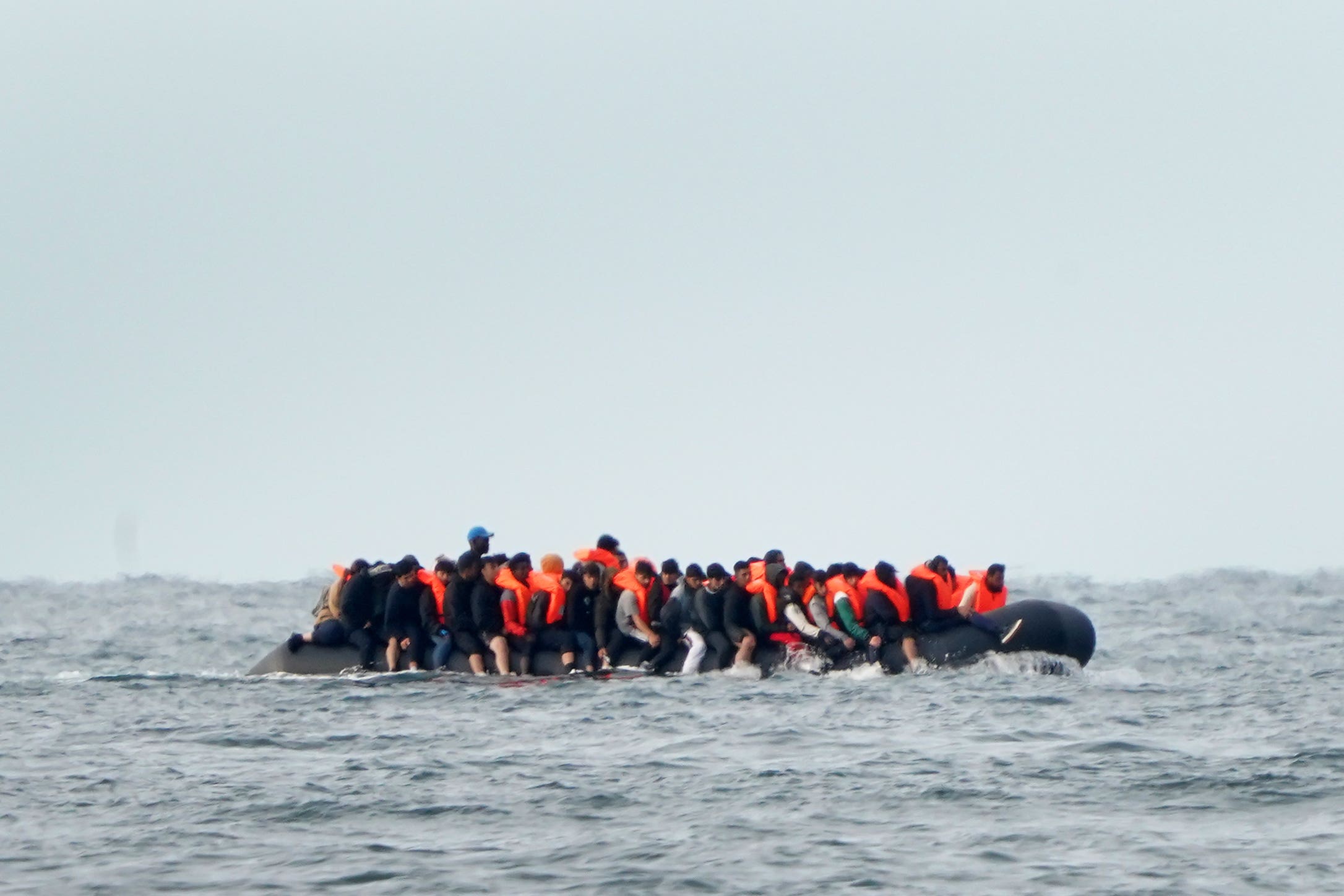Refugee who came to UK on boat says Rwanda policy is ‘like a hamster wheel’
Kaveh Khezri crossed the English Channel on a boat with 38 people on board.

A refugee who came to the UK on a boat with 38 people on board said the Government’s Rwanda policy is going around in circles “like a hamster wheel”.
Kaveh Khezri, 42, crossed the English Channel on April 15 2022, the day after then-prime minister Boris Johnson announced a plan to deport migrants arriving in small boats to Rwanda for their claims to be processed.
Mr Khezri, who fled Iran after being tortured, found out about the policy by accident when he went to check the weather on his phone before the crossing.
Asked if the Rwanda policy has put people off travelling to the UK on small boats, he said: “People are desperate and they just want to get somewhere safe… I think, for me, it just provoked them to do something because they were ready for any challenges.
You could tell from their look how terrified they were, especially the mother. When we were on the sea she kept kissing and pressing her kids to herself as if it was the last time she would see them
“Also, I think everybody in their mind, although they were scared of this, somehow on a very deep level they knew that it was a stupid scheme, that it was never going to go ahead.”
Mr Khezri said he would not have travelled to the UK if he had another option and described his journey across the Channel.
He told the PA news agency: “Just imagine that you are surrounded with water. Everything that you see is water. I’m sure that you can see how scary it is.
“There were a few families with us. One of them in particular that I remember was a Kurdish family with two small kids…
“You could tell from their look how terrified they were, especially the mother. When we were on the sea she kept kissing and pressing her kids to herself as if it was the last time she would see them. She had no hope.”
It took the boat Mr Khezri was travelling on two attempts to cross the Channel and its passengers were trapped at sea for around 20 minutes while they tried to fix the vessel.
He said: “On the second attempt, after two hours it stopped working and it wasn’t like the other time.
If they want to reduce the Channel crossings because, as they say, it is a risky journey, they need to provide some safe routes for people
“We couldn’t actually go back. For a few minutes I only heard silence. It was like no one was breathing. Everyone was just looking at each other desperately.”
He continued: “I kept thinking, ‘What if something happens to me? What about my family? What about my kids? I just left them to make sure that they have a better future, to find somewhere safe, but now if I die here what’s going to happen to them?'”
Asked if he has a message for the Government, Mr Khezri said: “If I had the chance, I would tell them that, ‘You need to sack your Rwanda plan because it’s not going to work. It’s like a hamster wheel. You are going to just go around in circles and you are not going to take it anywhere’.”
The father-of-two added: “If they want to reduce the Channel crossings because, as they say, it is a risky journey, they need to provide some safe routes for people… It’s not rocket science.
“They can have an immigration office in France and they can actually interview people to see if they are genuinely an asylum seeker and then they can provide them with safe routes to come to the UK.”
Mr Khezri, who now lives in Manchester, has been granted refugee status and his wife Safin, 37, daughter Sayan, 10 and son Ayan, three, arrived in the UK on September 6.
Bookmark popover
Removed from bookmarks